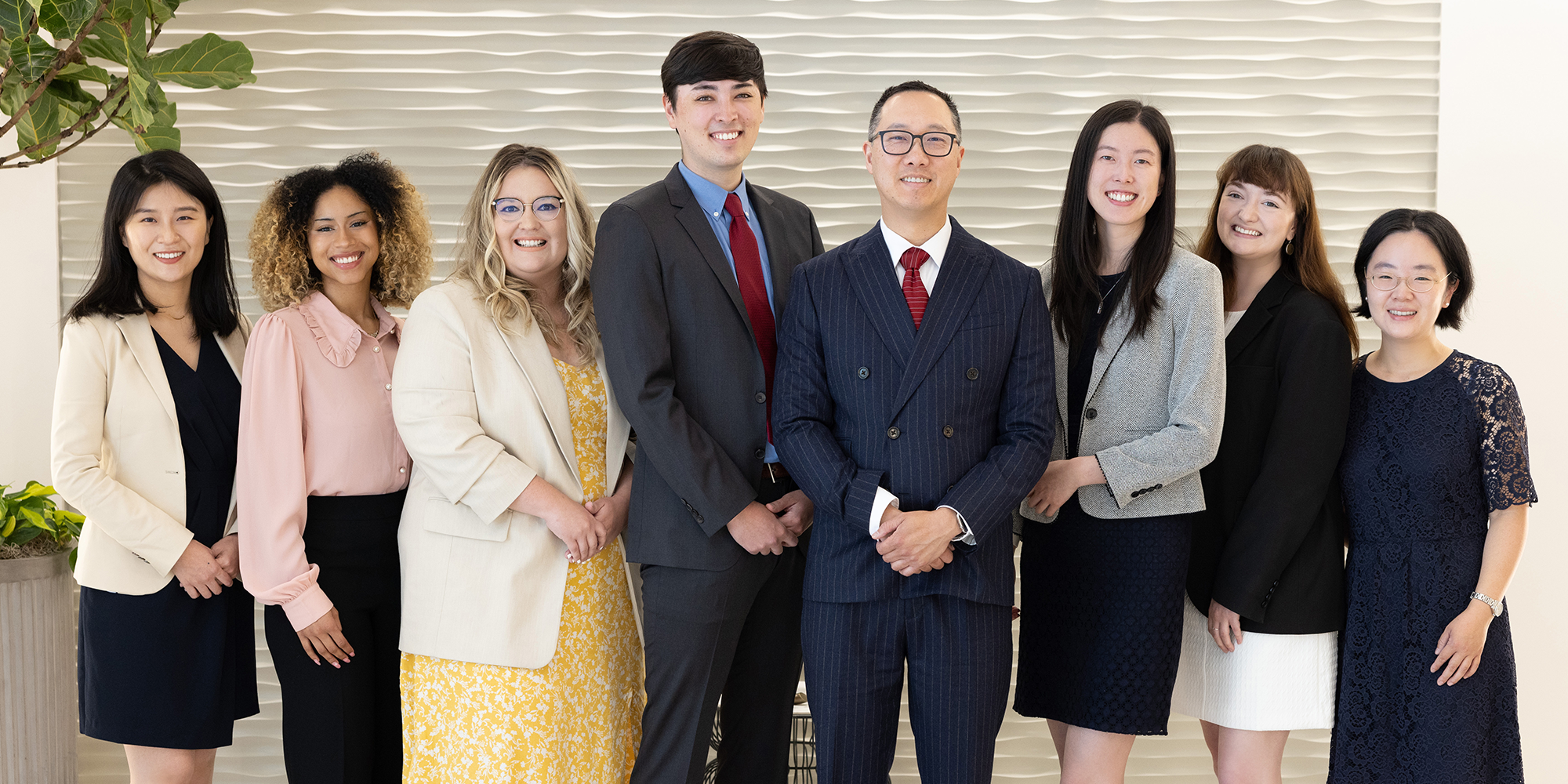H-1B Visas: Helping Companies Employ Specialized Employees
The H-1B program allows companies in the United States to temporarily employ foreign workers in occupations. That require the theoretical and practical application of a body of highly specialized knowledge. As well as, a bachelor’s degree or higher in the specific specialty, or its equivalent. H-1B specialty occupations may include fields such as. Science, engineering and information technology. At Fok Immigration Law, our San Jose attorneys are informative in H-1B Visas and ready to provide the guidance you need.
Common H-1B Visa Questions And Answers
How long does an H1B visa last?
A worker with a H1B visa can remain in the US for up to six years. Originally your visa is valid for three years. Extending it another three years is possible for six years.
Do I (as the employee) file or does my employer file?
The employer files for the H1B visa and must take several step. Including, submitting a Labor Condition Application (LCA) to the Department of Labor (Form ETA 9035). While the employer is required to file an H-1B. The rules do allow for someone who owns their own company to petition for themselves. As long as the petition is submitted through the company. (Click here for more information about H-1B start-up.)
What is a Labor Condition Application (LCA)?
The LCA demonstrates the actual wage versus the prevailing wage, with the actual wage being the company’s compensation for all employees with similar experience and skill. Typically, the prevailing wage is a figure provided by the individual state’s employment agency. Which it thinks is an accurate reflection of what other employers are paying for that position in a specific area (for example, in California the salary is calculated county by county). The employer must agree to pay the higher of the two wages.
The employer must also officially declare that employing the foreign national beneficiary will not adversely affect the working conditions of other similarly employed workers.
Are there any potential penalties if the employer does not remain in compliance with the law governing H1B employees?
There are potential civil penalties and the possibility that the Government could revoke the company’s permission to request and sponsor future H1B workers.
Who pays the fees associated with filing an H-1B visa?
The employer pays the fees associated with an H-1B visa.
Is there a cap for H-1B visas?
There is a mandating cap of 65,000 for H-1B visas (“regular cap”).
Are there any exceptions to the H-1B cap of 65,000?
There is an exemption from the H-1B cap. For beneficiaries who have earned a U.S. Master’s degree or higher (commonly known as the “advanced degree exemption”). However, it has its own separate cap of 20,000. H-1B applicants who will be employed at nonprofit research, university, or government institutions will not be counted toward the cap.
What is H-1B premium processing?
Premium Processing Service provides expedited processing for certain employment-based petitions and applications. Specifically, the USCIS guarantees 15 calendar day processing to those petitioners or applicants who choose to use this service. Otherwise, the USCIS will refund the Premium Processing Service fee. If the fee is refunded, the relating case will continue to receive expedited processing. During the April 2017, H-1B season, the USCIS suspended the premium processing program until October 2017. Advising employers that it may be done again for the 2018 H-1B season.
How does USCIS calculate the 15 calendar days?
The 15-calendar day period will begin when USCIS receives the current version of Form I-907, and request for Premium Processing Service, at the correct filing address noted on the form. USCIS will issue an approval notice, a denial notice, a notice of intent to deny, a request for evidence or open an investigation for fraud or misrepresentation. Within the 15-calendar day period. If the petition or application requires the submission of additional evidence or a response to a notice of intent to deny. A new 15 calendar day period will begin upon receipt by USCIS of a complete response to the request for evidence or notice of intent to deny.
Can the beneficiary of a visa petition seek Premium Processing Service?
Technically, no except in cases where the petition is eligible for filing as a self-petition (i.e., the petitioner and the beneficiary are the same). Otherwise, only the petitioner, the attorney, or representative who has filed a notice of appearance (Form G-28) on behalf of the petitioner. May request Premium Processing Service for a designated petition. The petitioner, attorney, representative, or beneficiary may pay the Premium Processing Service fee. But, the beneficiary cannot sign or file the Form I-907.
Will I have an advantage with premium processing if my petition falls within a category that has an annual limit?
Individuals who pay for Premium Processing Service on petitions filed for nonimmigrant classifications that are subject to annual numerical (“cap”) limitations will not have unfair access to these limited immigration programs.
If necessary, USCIS will apply a random selection process to all petitions received on the date. This happens when a sufficient number of petitions have been received to reach the applicable numerical limit (“final receipt date”) for cap-subject H-1B, H-2B and H-3 petitions regardless of whether Premium Processing Service is requested. Petitions that are accepted through this random selection process are adjudicated to completion. Cases subject to the cap which were not selected in the random process and cases that were filed after the final receipt date are rejected and fees are returned. It is highly likely that the 2018 H-1B application process will be going to a lottery system again. Estimating off last year’s numbers, there is a 30% to 40% chance of hitting the lottery after submission.
If my employer successfully files for an H1B visa for me and I want to quit my job – am I free to do so?
Unfortunately, if you leave your H1B visa job, you will be out of status. To maintain your H-1B status, you will need to transfer it to another employer who is willing to take over the H-1B.
Extending the visa beyond six years?
There are exceptions whereby the foreign worker can extend his/her stay beyond the six years. Under the American Competitiveness in the Twenty-First Century Act, or AC21.
H-1B workers can extend their visas if they are the beneficiaries of an approved Immigrant Worker Petition (I-140). They cannot file a green card or permanent residency application because their priority date is not current. The Department of State publishes priority dates in its monthly Visa Bulletin.
If the worker’s priority date is not current. The employer can extend the visa for another three years. There is a substantial backlog in priority for particular categories. The employer can keep extending the H-1B visa numerous times until the priority date becomes current.
The sponsoring employer should file a Labor Certification Application (LCA), or I-140. Before the beginning of the sixth year of the worker being in H1B status. If the application is still pending by its expiration. You can extend the H-1B status for another year.
Is the H1B visa transferable?
Regulations permit the H-1B employee to begin working for the new employer upon the filing of the transfer H-1B petition with the USCIS. H-1B applicants who currently have a transfer petition pending with the USCIS can begin working for the new employer immediately. H-1B visa employees can utilize this provision. So long as he or she was in lawful status at the time of filing the H-1B petition. Provided that the employee has not engaging in any unauthorized employment since last entering the USA.
Contact Fok Immigration Law With Your Additional Questions
If you are looking to secure a visa, our California immigration lawyers are prepared to help. Call us at 408-606-8911 to schedule a free initial case evaluation. You may also choose to contact us online.


